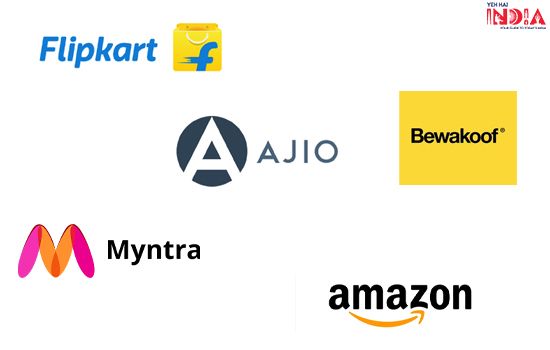Here are evidence-based ways entrepreneurs can leverage emerging AI technologies to create new products and services that meet evolving consumer needs.
Emerging AI technologies such as computer vision, natural language processing, and deep learning can help you create new products and services that meet changing customer expectations.
Here are seven ways ambitious entrepreneurs like you are leveraging emerging AI capabilities to meet customer’s shifting preferences.
- Targeting and retargeting potential customers
Most people still prefer to shop in-store than online, according to this post-pandemic PwC survey.

Image: Most people prefer to shop in physical stores – PwC
The retail industry is already using facial recognition to catch shoplifters on CCTV cameras. Now, similar technology is helping proactive brands improve their customer’s shopping experiences.
It is now possible to track a customer’s time spent in a physical store using facial recognition and computer vision. You can capture a customer who lingers a little longer next to a specific product. This may be an indication of interest in that item.
The next step will work only if you have your customers’ phone numbers and permission to send them spam-free messages with offers and item updates.
In most cases, customers are likely to accept messages from you when they expect value in return.

Image: Customers are willing to share personal information in exchnage for value
Plus, 98% of people open branded text messages, and 45% respond, according Gartner’s SMS marketing research.
You can then send your customers spam-free messages about deals you may have on offer. So, your system can send a follow-up message or offer to this customer regarding a product they spent quite a bit of time considering.
Coupled with your ability to accept mobile payments, this can be a powerful way to serve your customers and boost your sales.
- Brand Discovery, Competitor Analysis, and Sale Enablement
To integrate AI into marketing, sales, and CRM, you can leverage predictive marketing platforms like Mintigo.
A good example of a company that leverages this approach in a clever way is Getty Images. Getty Images uses similar AI tech for competitor analysis and sale enablement. It has for a while now used AI to capture which organizations have websites with images from its competitors.
Using this information, Getty’s sales and marketing teams can identify high-quality prospects to follow up on and win new business from.
For Getty’s leads, this is a great way to discover a new provider and what they have to offer.
- Capture Valuable Insights from Reviews
Using Natural Language Learning technology, you can now capture insights from reviews across multiple sources.
This is not just a powerful way to capture customer feedback. You can do even better.
Take an AI-powered conversation analysis tool like Chorus. The platform helps entrepreneurs like you to analyze the context within a conversation. You can identify defining moments within sales calls, including competitor mentions.
With this information, you can then determine what that competitor is offering that you should know about, or begin offering to your customers, to meet their changing tastes or requirements.
- Product or System Design
As an entreprenuer, you can use AI to design products that are fine-tuned to a specific customer segment.
Or, you can simulate different workflows to figure out the best or most efficient way to deliver specific services to improve customer experiences and satisfaction.
As one example, you can use predictive analytics and machine learning algorithms to personalize the sales process to customers with similar requirements.
This would help you to personalize their purchasing journey even further, whether you cater to a few customers at a time or thousands.
- Hyper-personalize search for online shoppers
Personalization has been around for some time now.
It’s worked based on an online shoppers recently viewed items, shopping cart contents, and purchasing history. Yet, people don’t usually come back to buy the same thing over and over.
Now, predictive analytics and machine learning are enabling newer paradigms of personalization by predicting a purchase decision based on market trends — alongside shopping cart contents and recently viewed items.
By focusing on potential purchase decisions, this approach is more dynamic than bygone purchases that are unlikely to be repeated.
Another way to do it is to integrate an AI-powered chatbot system into your shopping cart solution.
Some systems require shopping cart integration to gather personalization information. That includes product details, such as quantities, whether it was bought on discount, and preferred shipping terms.
The chatbot can use this integration to provide personalized search results, FAQ answers, and recommendations to customers.
- Multilingual Customer Support
As AI-powered translation engines advance, you can leverage them for real-time customer service.
For example, a customer service agent can use a language translation tool to translate a customer’s query and respond in near-real-time, enabling them to interact with customers in their native language.
Paired with conversational AI, this approach can provide multilingual customer service to a diverse, global customer base.
- Forecasting Demand and Supply Schedules
Robust inventory management tools don’t just help you monitor inventory levels in real time. They can also help you automatically re-order supplies when you need them.
For your customers, this means they can always find the products they’re looking for, when they are looking for them.
For your business, this is an efficient way to keep a lean inventory and avoid tying up cash in slow-moving or unnecessary stock.
AI demand forecasting takes that further.
You get to use machine learning and predictive analytics to identify changing customer behavior.
For example, you could identify a trend towards adopting a particular product, service, or ingredients. This can help adopt your purchasing strategy accordingly, mitigating purchasing risks.
- Regulation Compliance
And speaking of purchasing strategies, you can also use artificial intelligence to comply with shifting regulatory requirements.
This is particularly useful in rapidly changing markets or highly regulated industries.
Yet it also applies for new inventions, products, or services whose applications are not completely understood, and so guidelines continue to be developed.
By using artificial intelligence, companies with operations in multiple jurisdictions can reduce the amount of data they have to keep collecting and analyzing to remain compliance.
Instead, AI can help detect changes in international regulations and automatically update company data and policies accordingly.
You can then monitor and understand changes to tariffs, taxes, quotas, and other regulations from one country to another, minimizing the risk of fines, penalties, or losing customers.
What Next
Emerging AI technologies are helping proactive organizations to rapidly develop new products and services to meet changing customer demands in the world of online businesses.
AI-powered analytics tools can analyze market trends and provide insights into customer preferences. This is allowing companies to tailor existing products and services, or create new ones, to meet customer demands proactively instead of being impacted by market surprises.
Author Bio
Jon Torres is the founder and CEO at JonTorres.com and Up Venture Media. He is a digital marketing consultant who is frequently called upon to consult and coach online businesses, affiliate marketing being his major!


